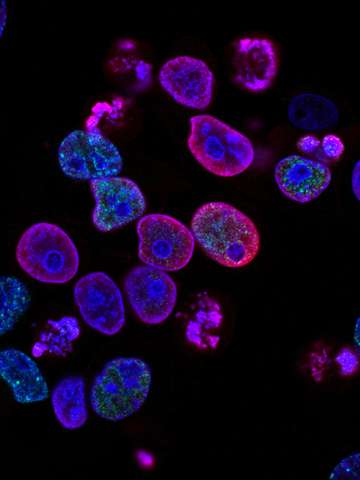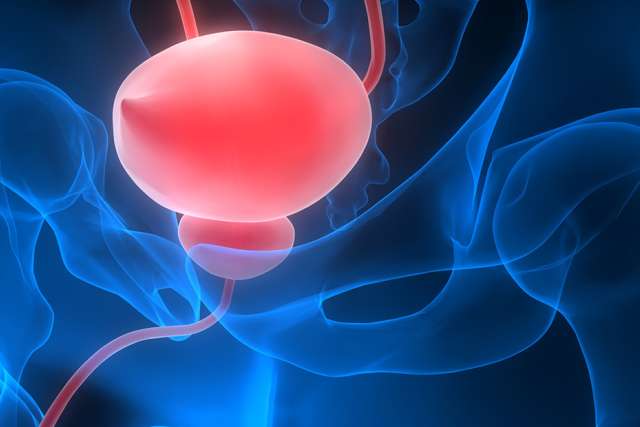Bladder Cancer Care
Our skilled team of bladder cancer doctors and specialists delivers the highest-quality care with compassion.

Why choose UCLA Health for bladder cancer care?
The UCLA Health Bladder Cancer Program is part of the Institute of Urologic Oncology at the UCLA Health Jonsson Comprehensive Cancer Center (JCCC). The JCCC is one of only 51 cancer centers recognized by the National Institutes of Health for innovative cancer research and clinical care.
At UCLA Health, our Bladder Cancer Program includes:
- Comprehensive, compassionate care: The Bladder Cancer Program at UCLA Health offers the latest state-of-the-art treatments and individualized care.
- Team-based approach to care: Our bladder cancer specialists meet regularly to share expertise and discuss each patient's treatment.
- Access to innovative research: For more than 50 years, our scientists have been making groundbreaking discoveries. We offer patients the opportunity to join our pioneering clinical trials.
- Multiple convenient locations: You can receive bladder cancer services at our community cancer care centers located across the greater Los Angeles region. UCLA Health is proud to offer the highest-quality care close to home.
Our bladder cancer services
From diagnosis to post-cancer care, UCLA Health's Bladder Cancer Program offers comprehensive services, including:
Diagnosis
Our bladder cancer specialists use the latest diagnostic tools to identify and stage cancer, including:
- Bladder biopsy: A procedure that involves removing the tumor and staging the disease with a team of dedicated genitourinary pathologists.
- CT and MRI scans: Imaging tests that allow doctors to see inside the bladder and surrounding organs to check for cancerous tumors.
- Cystoscopy: A procedure that helps doctors examine the lining of the bladder and the lower urinary tract.
- Urinalysis: A urine-based lab test that detects blood and cancer cells.
Cancer genetics
Our Genitourinary Cancer Genetic Risk Assessment Program evaluates for germline mutations which may increase bladder cancer risk in individuals and can be passed on to offspring. Knowing about a specific genetic risk can more precisely tailor a treatment plan that is optimal for you. Learn more about the cancer genetics program at UCLA Health. We also test tumor tissue for somatic mutations that can influence the type of treatment you may receive.
Cancer support
Finding a supportive community helps ease the burden of cancer. Count on the . We provide numerous resources to help cancer patients cope, including trainings and workshops from mind-body healing to stress management strategies.
Bladder cancers we treat
There are several types of bladder cancer, along with subtypes:
- Urothelial cell carcinoma: The most common form of bladder cancer. it originates in the urothelial cells, which line the inside of the bladder. It may also be called transitional cell carcinoma.
- Adenocarcinoma: A rare but aggressive type of bladder cancer that starts in glandular cells of the bladder's inner lining.
- Squamous cell bladder cancer: A rare cancer that starts in the squamous cells of the bladder lining. It may form in the bladder following recurrent infections.
Treatments we offer
From surgery to drug therapy and clinical trials, UCLA Health offers the most advanced treatments available, including:
Nonsurgical bladder cancer treatments
Some bladder cancers respond to nonsurgical treatments, including:
- Chemotherapy: A drug or combination of medications used to kill cancer cells. Chemotherapy may also be used before surgery to shrink tumors or after surgery to lower the risk of cancer returning.
- Radiation therapy: The focused use of high-energy beams to kill cancer cells without damaging healthy tissue.
- Immunotherapy: Medications used to augment an individual's own immune system to destroy cancer.
- Chemotherapy: A drug or combination of medications used to directly kill cancer cells.
- Radiation therapy: The focused use of high-energy beams to kill cancer cells while limiting damage to healthy tissue.
- Clinical trials: Research of promising treatments for bladder cancer.
Bladder cancer surgery
Depending on the extent of cancer, your surgeon may choose to remove part or all of your bladder. Surgery for bladder cancer may include:
Transurethral resection of bladder tumor [TURBT]: A minimally invasive surgical procedure to biopsy or treat bladder cancer.
Cystectomy: A procedure to remove part or all of the bladder. During a cystectomy, the surgeon may also remove surrounding lymph nodes.
Bladder reconstruction: A procedure to create a way for the body to pass urine out of the body after bladder removal. There are several techniques:
- Ileal conduit: A method that uses part of the intestine to funnel and drain urine from the kidneys to an ostomy bag attached to the patient's skin.
- Continent diversion: Surgery to create a small bladder with an artificial opening (stoma). Patients drain the urine using a catheter several times a day.
- Neobladder reconstruction: A procedure that uses part of the intestines to construct a new bladder. The ureters and urethra are connected so that urine passes normally.
Meet our team
For more than 50 years, UCLA Health bladder cancer specialists have discovered and delivered the highest-quality, leading-edge cancer treatments.
Urologic Oncology
Medical Oncology / Hematology Oncology
Radiation Oncology
Contact us
Call to request an appointment with a bladder cancer specialist at UCLA Health.
Find your care
Our Bladder Cancer Program provides innovative treatments and world-class care. For more information, connect with a cancer care specialist at .











